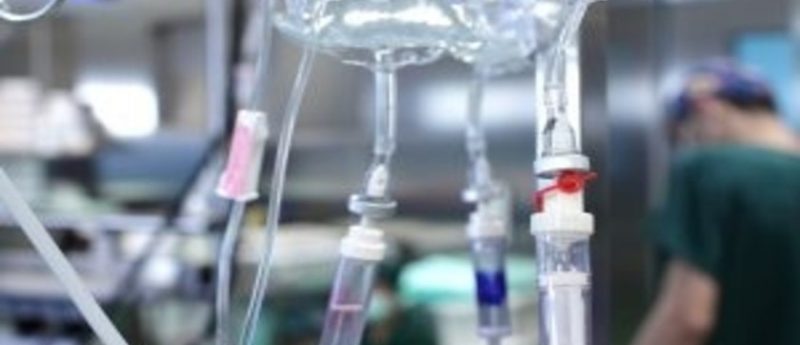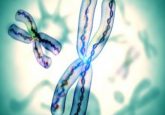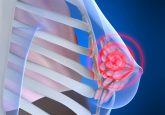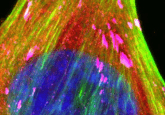SABCS15: Improved survival rates in triple-negative breast cancer with addition of carboplatin to neoadjuvant chemotherapy

A new study has found that carboplatin in combination with anthracycline/taxane-based presurgery chemotherapy improved survival rates in patients with triple-negative breast cancer (TNBC). The results of the Phase II GeparSixto clinical trial were announced at the 2015 San Antonio Breast Cancer Symposium (held 8–12 December, San Antonio, TX, USA).
Previous results from GeparSixto found that carboplatin in combination with anthracycline/taxane-based neoadjuvant chemotherapy increased pathologic complete response (pCR) in TNBC patients from 36.9 – 53.2 %, meaning that they had no residual cancer in breast tissue or lymph nodes removed during surgery.
“Here we show that the improved pCR rates translated into improved disease-free survival,” commented investigator Gunter von Minckwitz from the University of Frankfurt (Germany). “Patients with TNBC who received carboplatin as part of their neoadjuvant chemotherapy regimen were almost half as likely to have had disease relapse at 3 years after starting treatment compared with those who did not receive carboplatin, and it was those patients who had a pCR who were least likely to have disease relapse.”
von Minckwitz explained that the results support the inclusion of carboplatin as a standard part of the neoadjuvant chemotherapy regimens utilized to treat TNBC.
The researchers enrolled 315 TNBC patients in the trial, including 50 patients with germline BRCA gene mutations. Patients were administered neoadjuvant chemotherapy (paclitaxel, non-pegylated-liposomal doxorubicin and bevacizumab) for a period of 18 weeks, and were randomly assigned either to the carboplatin or the non-carboplatin treatment group.
Disease-free survival for carboplatin-treated patients was 85.5% compared with 76.1% for patients who did not receive carboplatin, after a median follow-up of 3 years.
“We were very excited to see a statistically significant improvement in disease-free survival for patients who received carboplatin because the study is relatively small and would not have been powered to show the effects of carboplatin on survival if the differences had been smaller,” commented von Minckwitz. “Interestingly, the improvement for disease-free survival was observed predominantly for patients without a germline BRCA mutation, a group where we thought that platinum compounds are not active.”
“Further studies are needed to investigate this, however, because there were only 50 patients who had a germline BRCA mutation in our study,” von Minckwitz continued. “We might in this group just not see an existing effect of carboplatin or it could be there is no extra effect because of the high sensitivity of these patients to the other agents given.”
After a median 3 year follow-up, five out of the 129 TNBC patients with pCR experienced disease relapse, compared with 50 out of 162 patients who did not have a pCR.
“These pCR data are important for the research community,” commented von Minckwitz. “They show that the effect of carboplatin on disease-free survival was correctly predicted by its effect on pCR and they add to the evidence that suggests that pCR can be a surrogate for clinical benefit if the effects of an investigational agent on pCR are large.”
Source: American Association for Cancer Research press release



